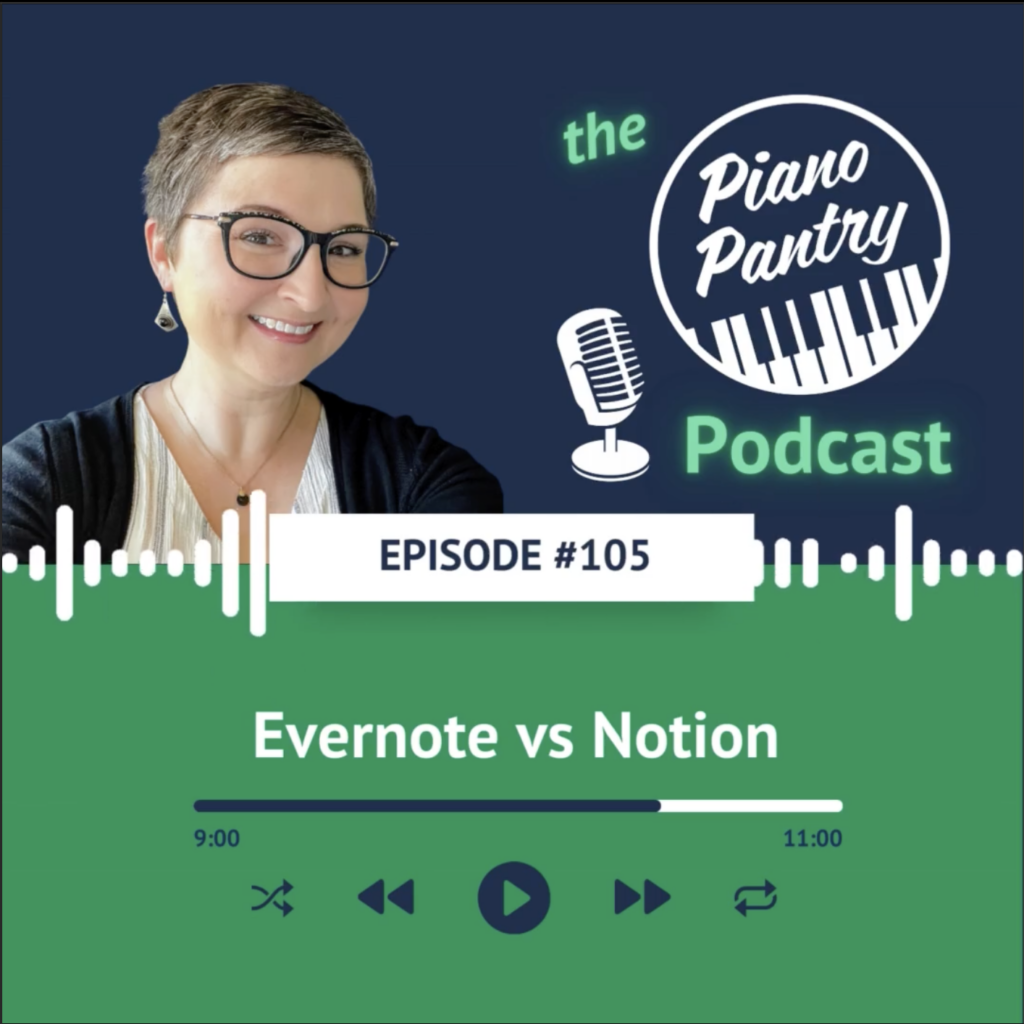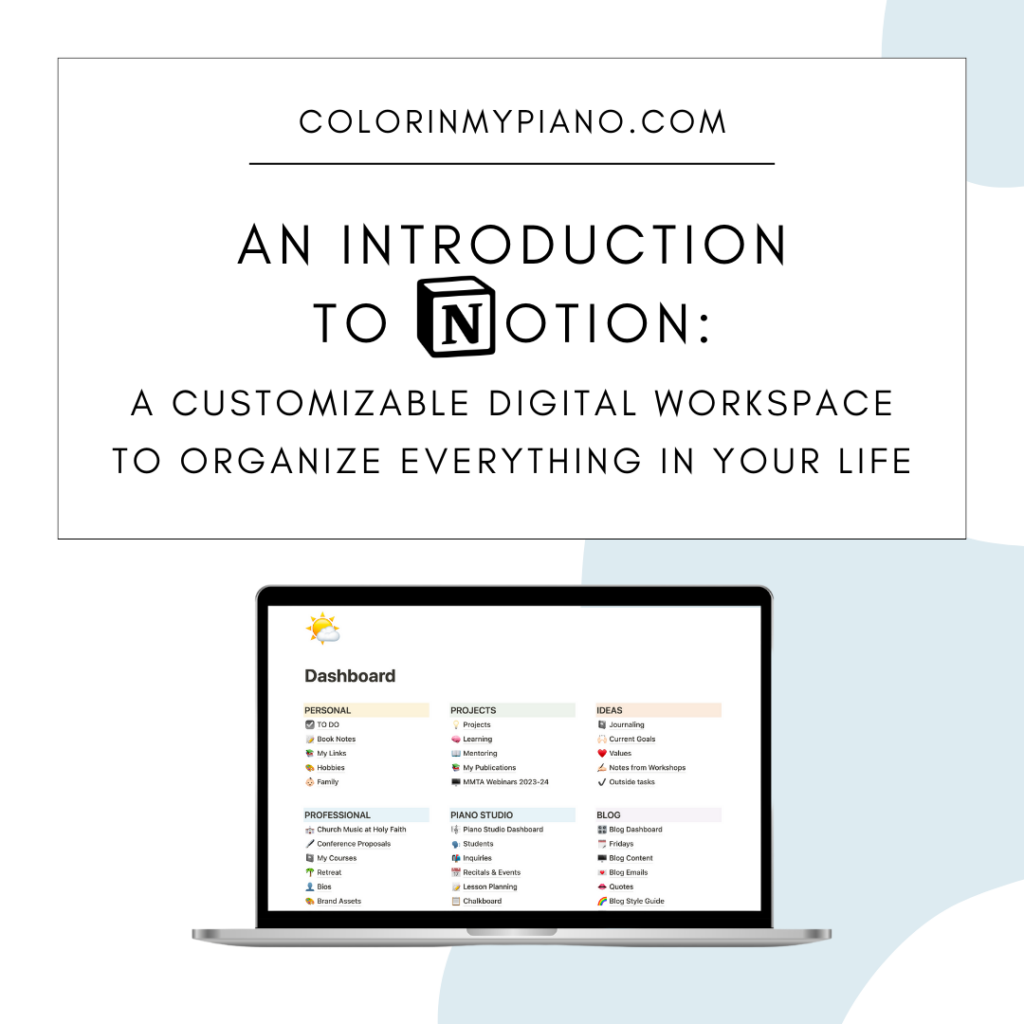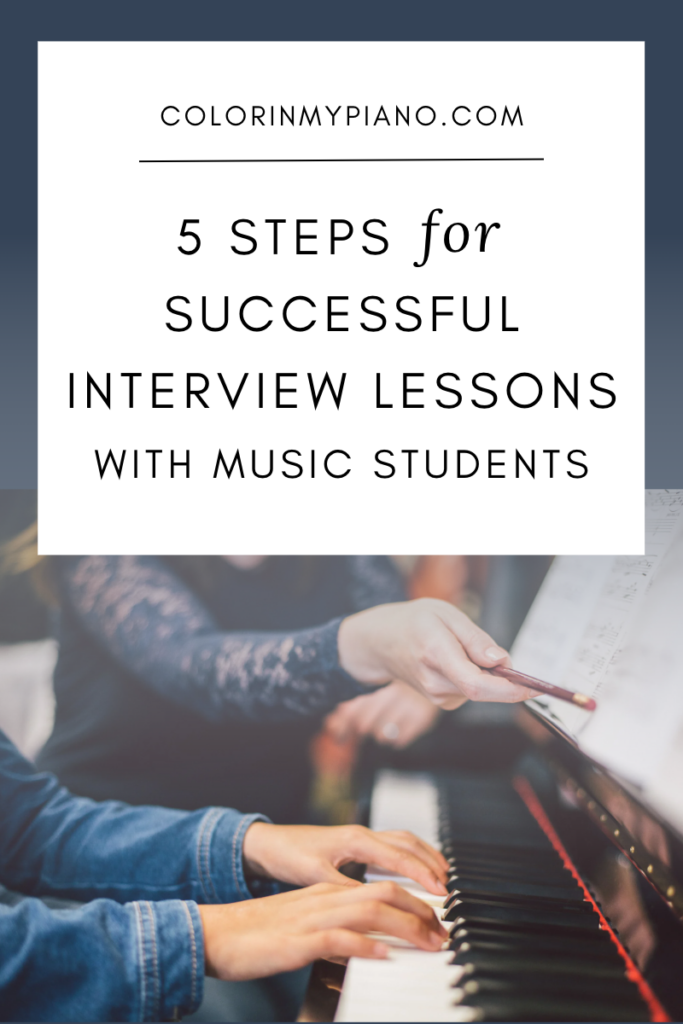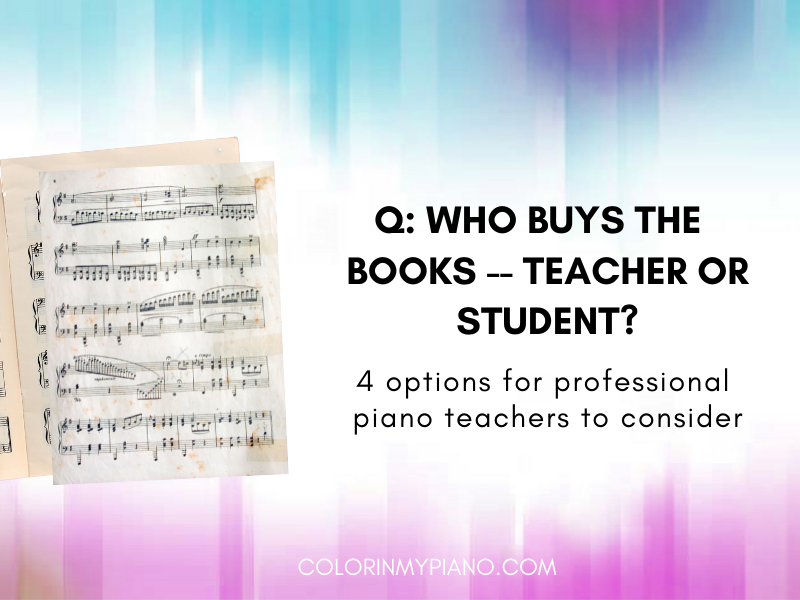
Just a brief note from me today — I wanted to point you a Piano Pantry podcast episode that just dropped from my pal, Amy Chaplin. In this episode, Amy goes on a deep-dive comparing the two productivity apps, Evernote and Notion.
If you know Amy at all, you know that organization is a strength and passion of hers. She’s been a longtime user of Evernote as a tool to capture notes, ideas, and documents. As she describes in her podcast episode, when Notion came on her radar, however, she moved the majority of her Evernote content over to the Notion. In this episode, she also points out the main differences between Evernote and Notion and WHY she decided to make the switch. She also lists examples of how she uses Notion in her daily life.
Take a listen to Amy’s Evernote vs Notion episode (or read the transcript) HERE. And feel free to check out more episodes from her Piano Pantry podcast HERE.
Have a great weekend, friends!
PS: In case you missed it — I published my in-depth Introduction to Notion blog post last week. And Amy and I are working hard right now to prepare a special event: a two-day, online workshop where we help you build your own centralized digital workspace in Notion as a piano teacher. It’ll be held Friday, March 8 and Saturday, March 9, 2024, from 10:30am to 1:30pm Eastern each day. We are planning an AWESOME event with lots of bonus materials and Notion templates that you won’t want to miss. Please mark your calendar, and stay tuned for registration info soon!




